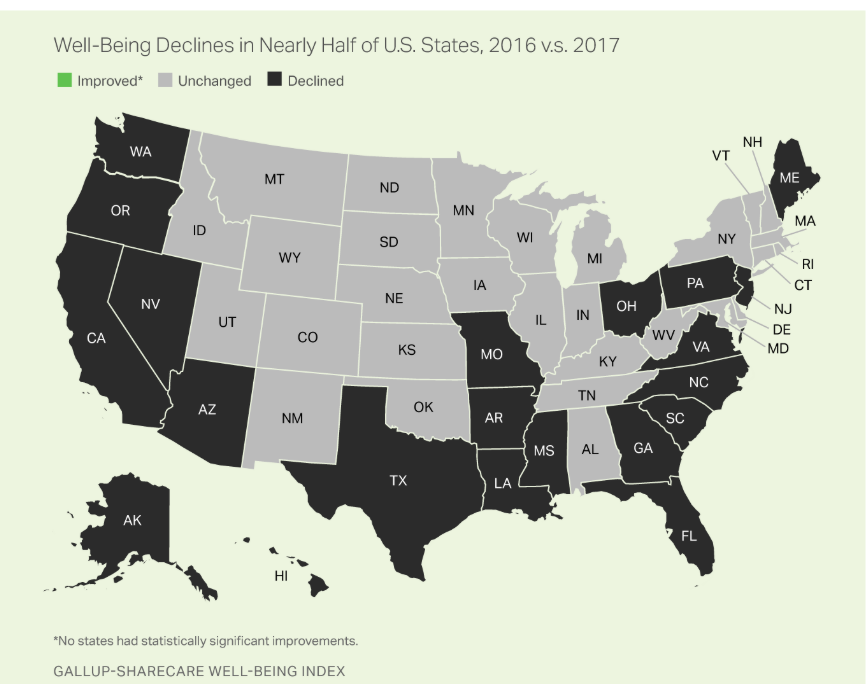In recent years, wellbeing has become an important topic in discussions about health. As society embraces a definition of health beyond the absence of disease, more people are recognizing the critical role of emotional, psychological, and social wellbeing in leading a fulfilling life.
The Gallup-Sharecare Well-Being Index measures Americans’ perceptions of their lived experiences by measuring sense of purpose, social relationships, financial security, relationship to community, and physical health. Index scores fall between 0 (the lowest possible score) and 100 (the highest score attainable). Since the index began in 2008, the overall score for wellbeing in the US has remained relatively stable.
2017 marked the first time no state reported an improvement in wellbeing from the year before. The map shows that 21 states experienced a decline in wellbeing while scores for the remaining 29 states remained unchanged. Nationally, the wellbeing index score was 61.5—the lowest in the index’s history.
South Dakota, Vermont, and Hawaii ranked the highest in wellbeing, while Arkansas Louisiana, and West Virginia ranked lowest.
Sense of purpose and social wellbeing were indicators mostly responsible for declines. This was reflected in an overall decrease in satisfaction with standard of living and an increase in clinical diagnoses of depression.
Greater wellbeing facilitates better performance at work and stronger relationships with family and friends. As such, the result of the Index report underscores the need to improve the wellbeing of Americans by fostering opportunities that promote purposeful engagement and strengthen mental health services.
Databyte via Record 21 Sates See Decline in Well-being in 2017. Gallup.














